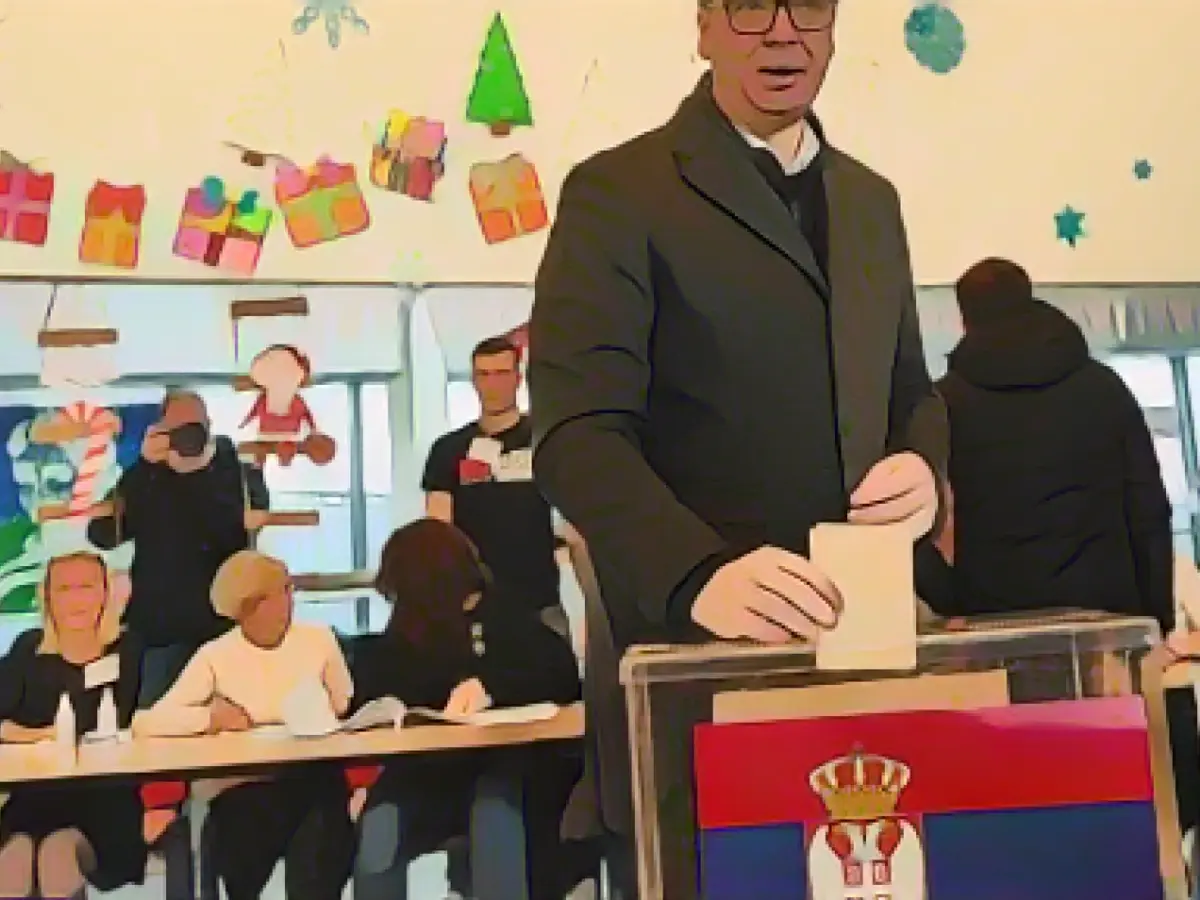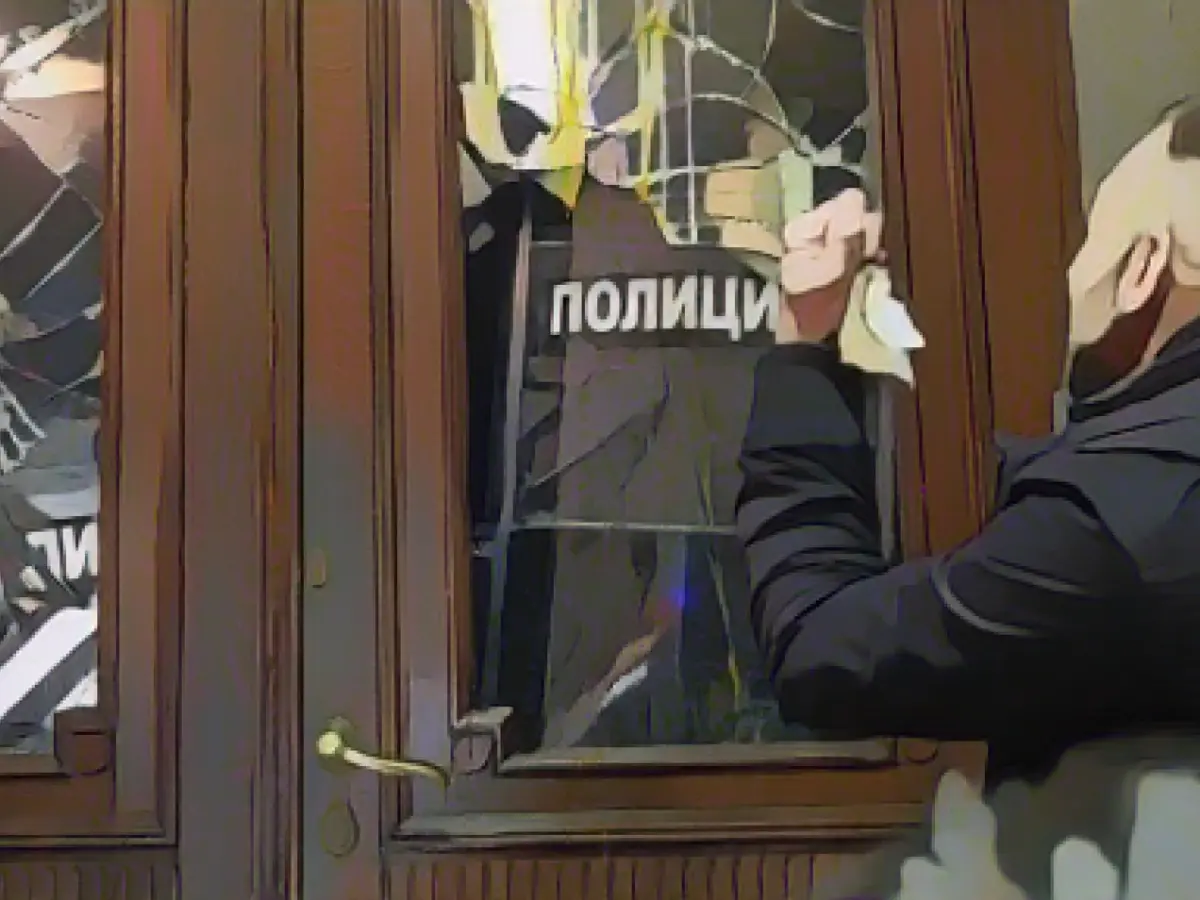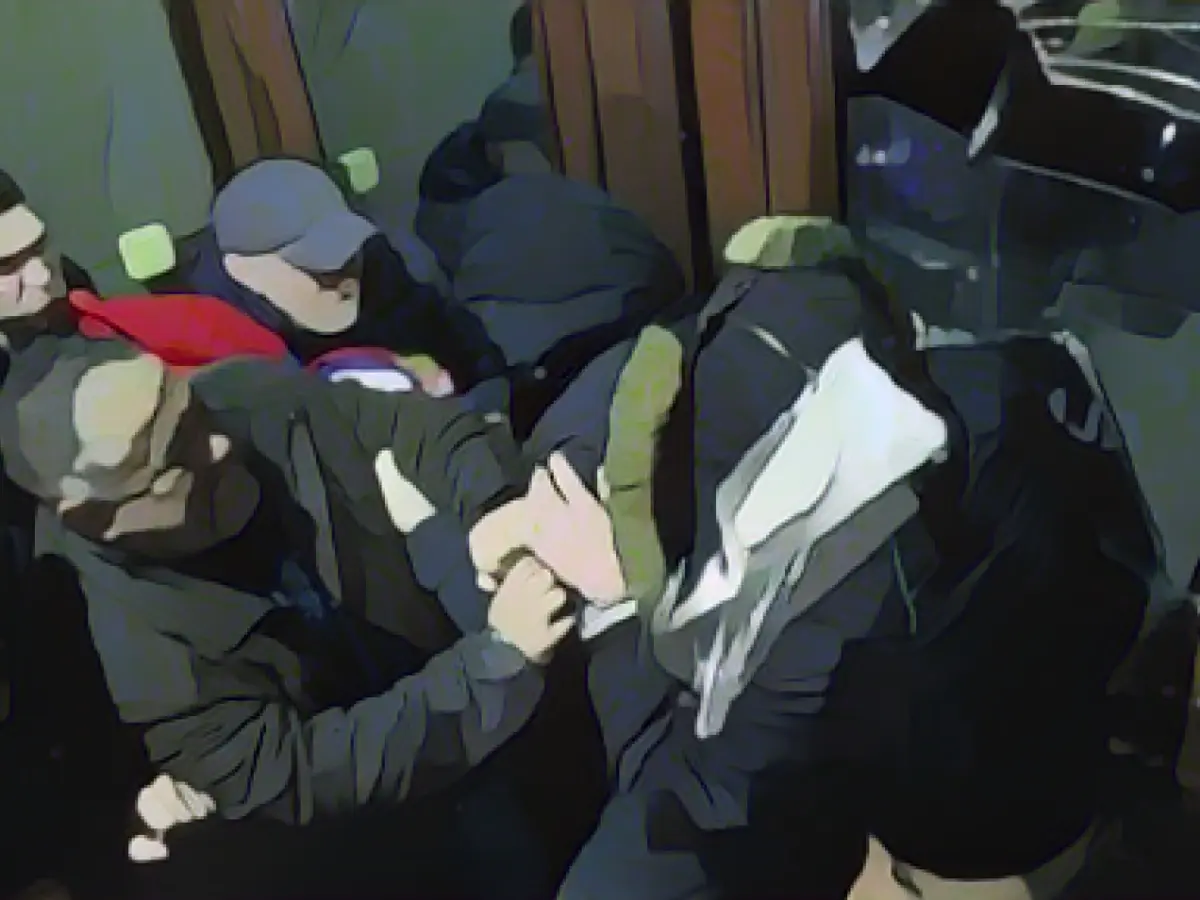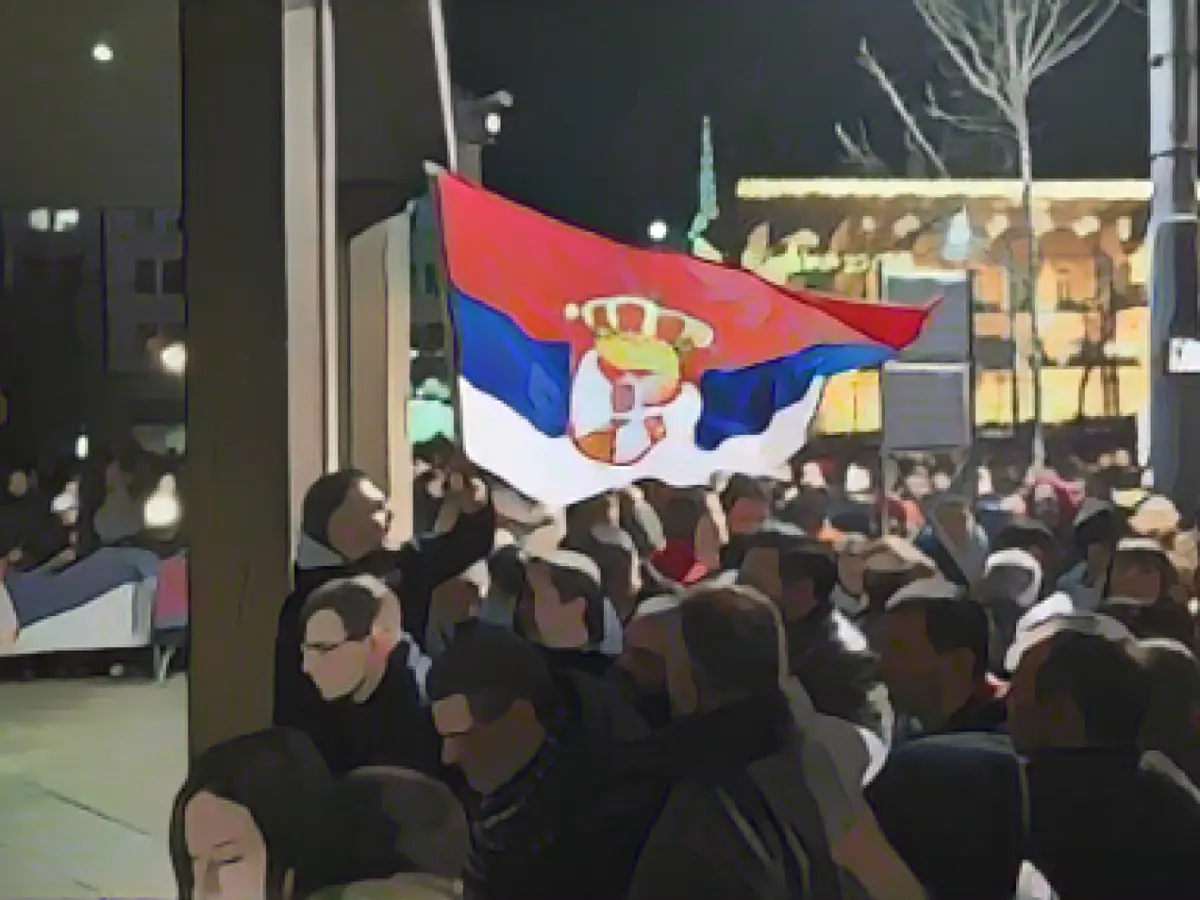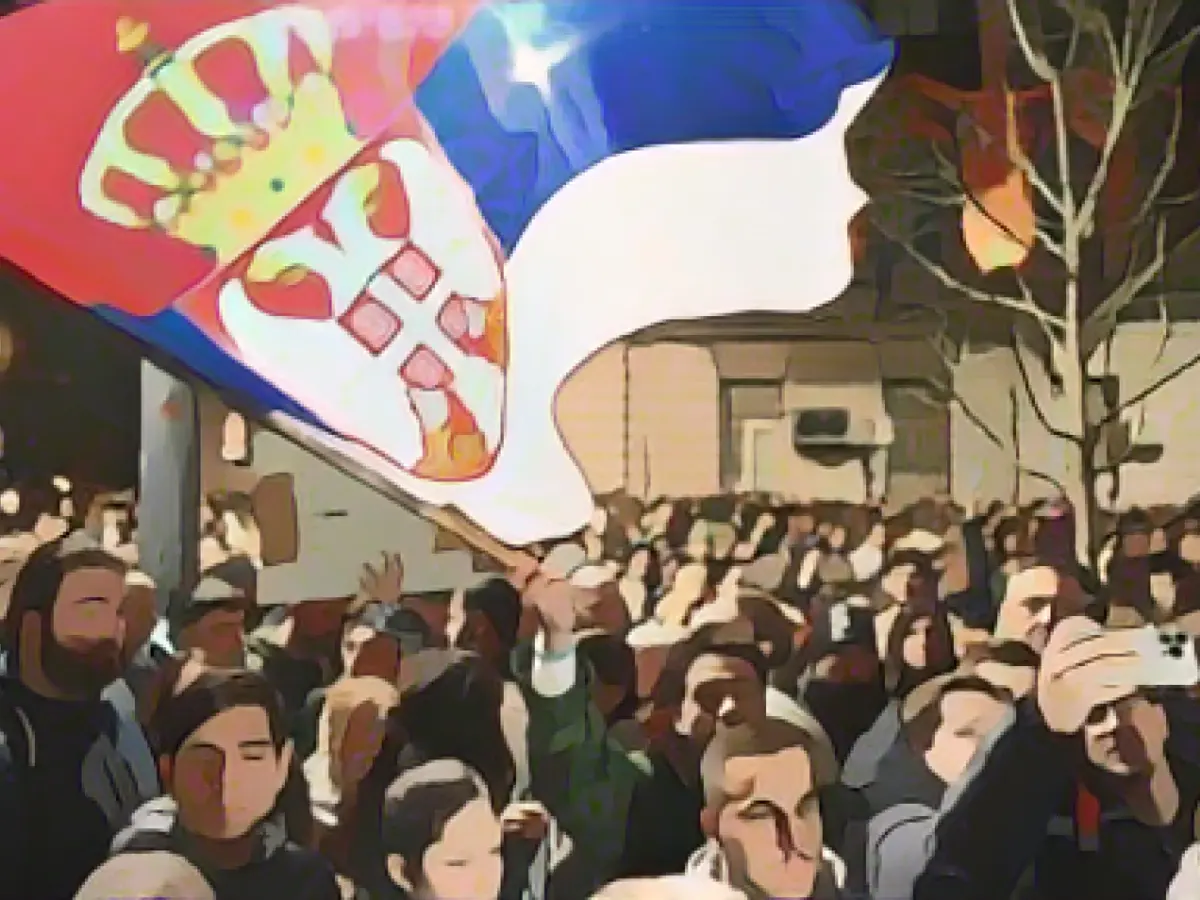Serbian Citizens Cast Their Votes in Eagerly Awaited Elections
The people of Serbia took to the polls on a chilly Sunday, eager to choose their new parliament representatives. By mid-afternoon, 32.4% of eligible voters had already exercised their democratic right, according to the election commission in Belgrade. This represented an increase of 0.8 percentage points compared to the turnout in the similar elections held 17 months prior.
The high stakes of these elections saw around 6.5 million Serbian voters called upon to elect the 250 members of the People's Assembly (Skupstina). The Serbian Progressive Party (SNS), led by President Aleksandar Vucic, was predicted to take a commanding lead, with polls indicating a potential victory of up to 45%. The Socialist Party of Serbia (SPS), headed by Foreign Minister Ivica Dacic and long-time coalition partner of the SNS, was expected to gain nine percent of the vote.
The liberal opposition alliance "Serbia against Violence" hoped to capitalize on the growing discontent within the country, aiming to capture the capital's local elections and potentially weaken Vucic's grip on power. In an unprecedented move, various far-right parties also hoped to win representation in parliament. Meanwhile, parties representing ethnic minorities, such as Hungarians, Bosniaks, Albanians, and Croats remained exempt from the 3% threshold.
A Tense Political Landscape
The dissolution of the last parliament by President Vucic less than two years earlier was met with widespread criticism. Many pointed to his authoritarian style and alleged abuse of power as reasons for using early elections to maintain loyalty within his support base. Critics accuse the government, police, and secret services of intentionally targeting political rivals economically and defaming them in the media.
Furthermore, accusations of coordinated assaults on opposition members and collaboration with organized crime batter the reputation of those close to Vucic. Controversial issues, such as the two rampages in May that resulted in 18 deaths, as well as tensions in Kosovo, further fuel the political climate in Serbia.
Despite controversy and calls for a thorough investigation, Vucic pushed ahead with the elections, which also included local elections for the Chamber of Deputies of the semi-autonomous northern province of Vojvodina and 65 of 197 municipal councils, including Belgrade's council.
A Promising Challenge for the Opposition
The high-stakes nature of these elections saw opposition parties showcasing their readiness to bring about change in Serbia. The liberal opposition alliance "Serbia against Violence" formed to rally support and effect change in the country aimed to disrupt Vucic's political dominance by capturing the capital in the local elections.
Simultaneously, the opposition hoped that a strong showing in the country as a whole would mark a turning point in Serbia's political landscape. While expectations for victory may have been high, the opposition was determined to hold their ground and maintain the momentum for change.
Enrichment Insights:
- In the recent parliamentary and local elections held on December 17, 2023, the Serbian Progressive Party (SNS) led by President Aleksandar Vucic secured a significant victory, winning 46.75% of the votes.
- The main opposition party, Serbia Against Violence (SPN) contested the results, alleging irregularities, and demanding an investigation by the European Union.
- The opposition's strong showing in the elections, coupled with allegations of irregularities, has created an unstable political environment that could potentially result in snap elections in the future.
- The political landscape in Serbia is currently at a crossroads, with questions surrounding President Vucic's future and the stability of his ruling party.
- The SNS and SPS's continued dominance in Serbian politics has been met with growing discontent, creating an opportunity for the opposition to capitalize on and potentially form a new government.
Sources:
[1] "Serbia votes in crucial parliamentary elections." (2023, December 18). .
[2] "Serbia elections: Opposition leaders accuse government of rigging vote amid protests." (2023, December 18). .
[3] "Serbia's Vucic faces protests over Serbia Parliament Election results." (2023, December 18). .
[4] "Serbia's opposition parties unite amid crisis after prime minister's resignation." (2023, October 15). .
[5] "Serbia's Opposition Prepares for 'Independence Day' in Local elections." (2023, October 26). .
[6] "Serbia: Opposition Coalition 'Serbia Against Violence' Launched." (2023, November 11). .
[7] "Serbia's main opposition parties to join forces against Vucic." (2023, October 31). .
